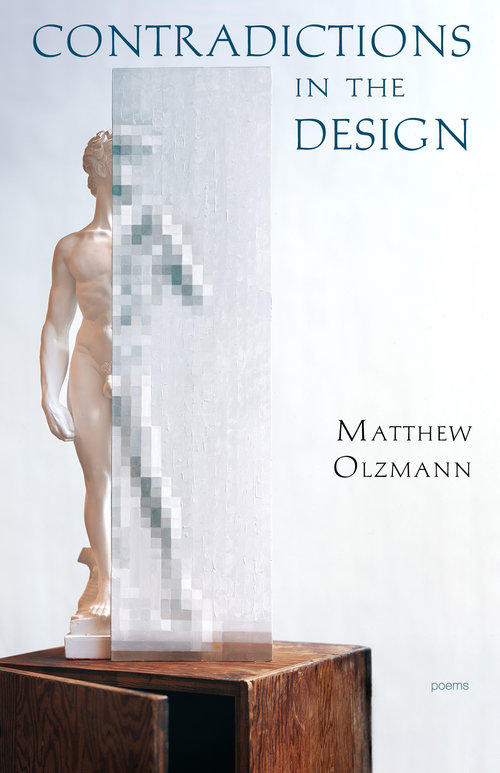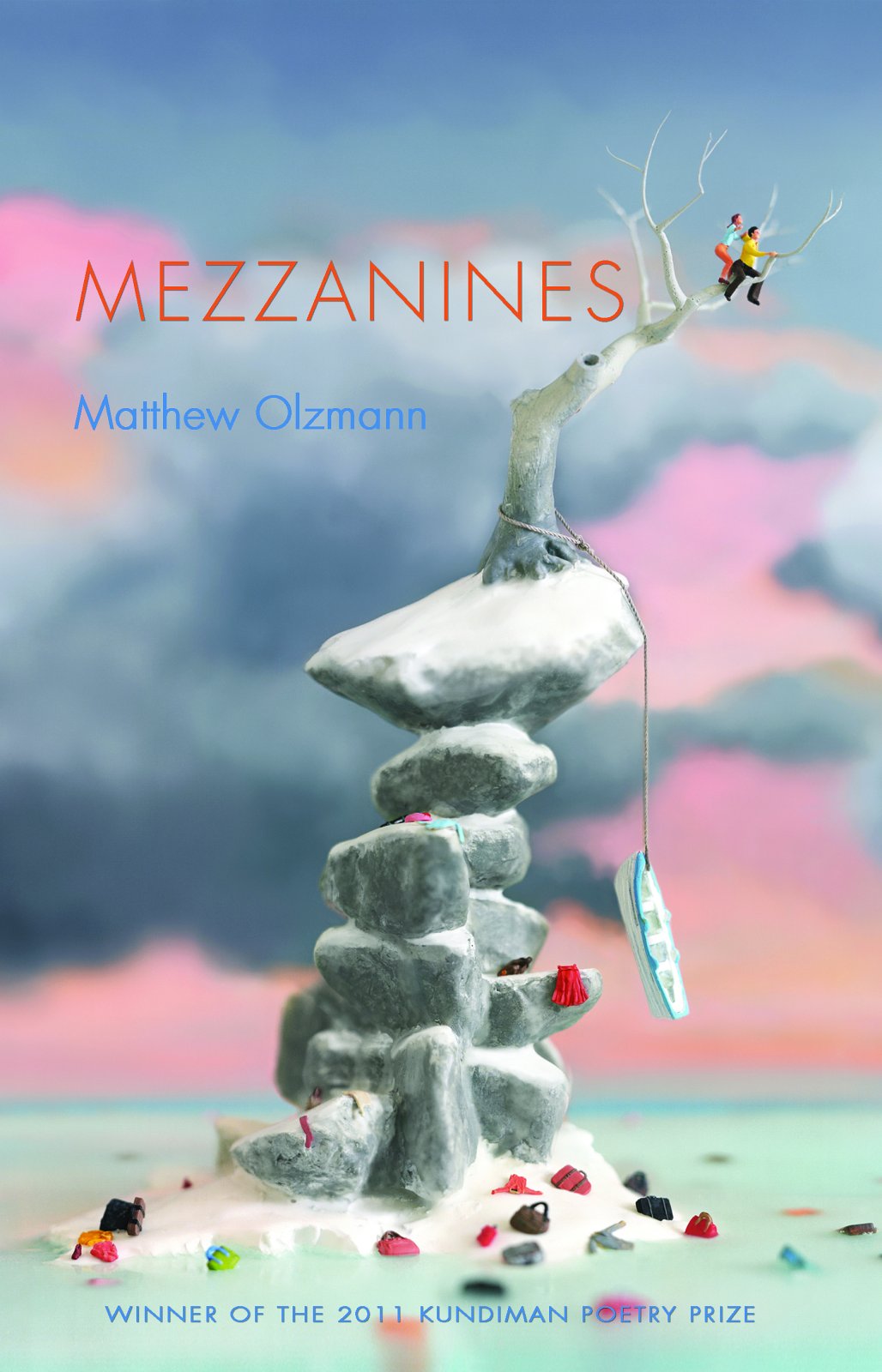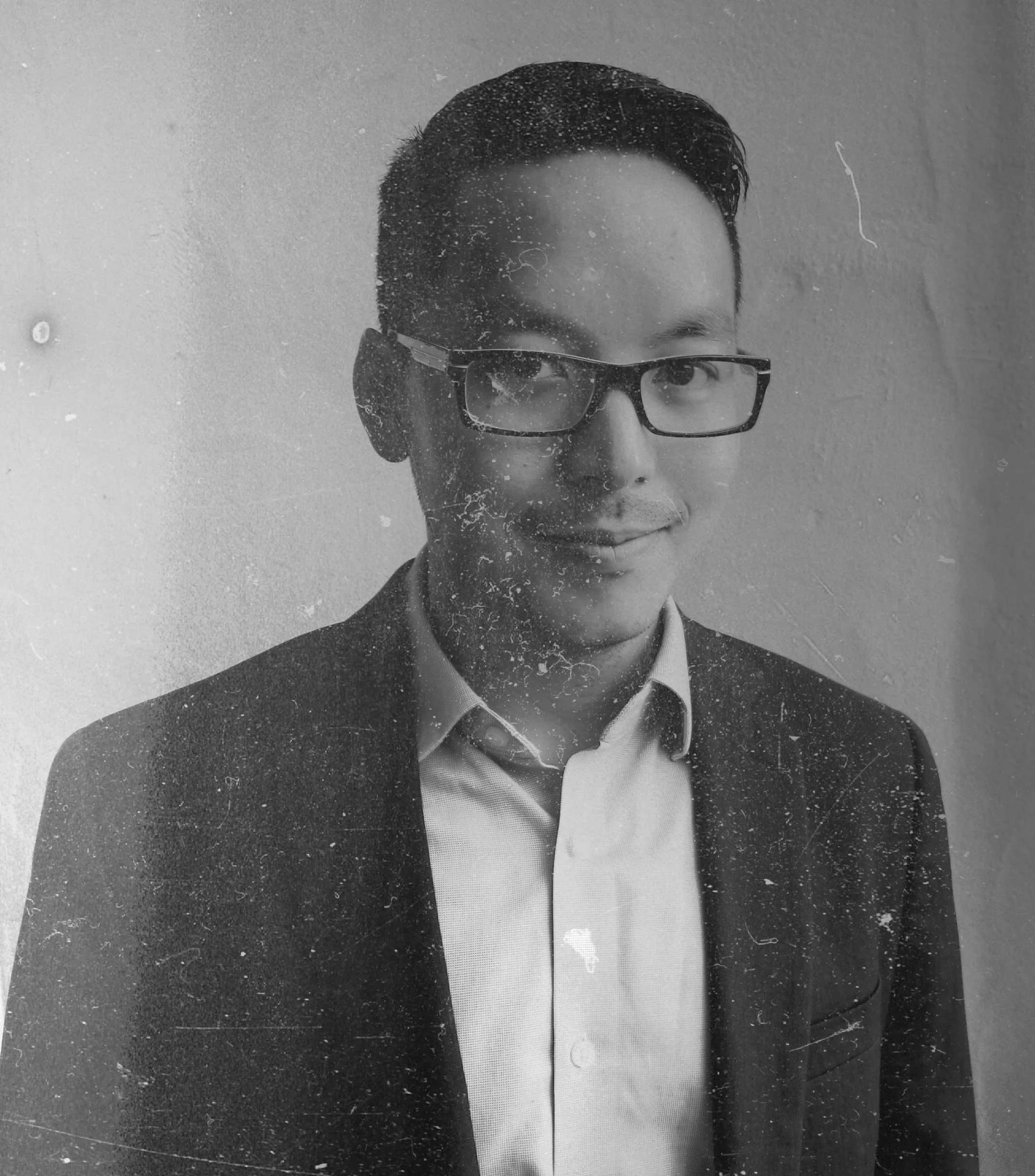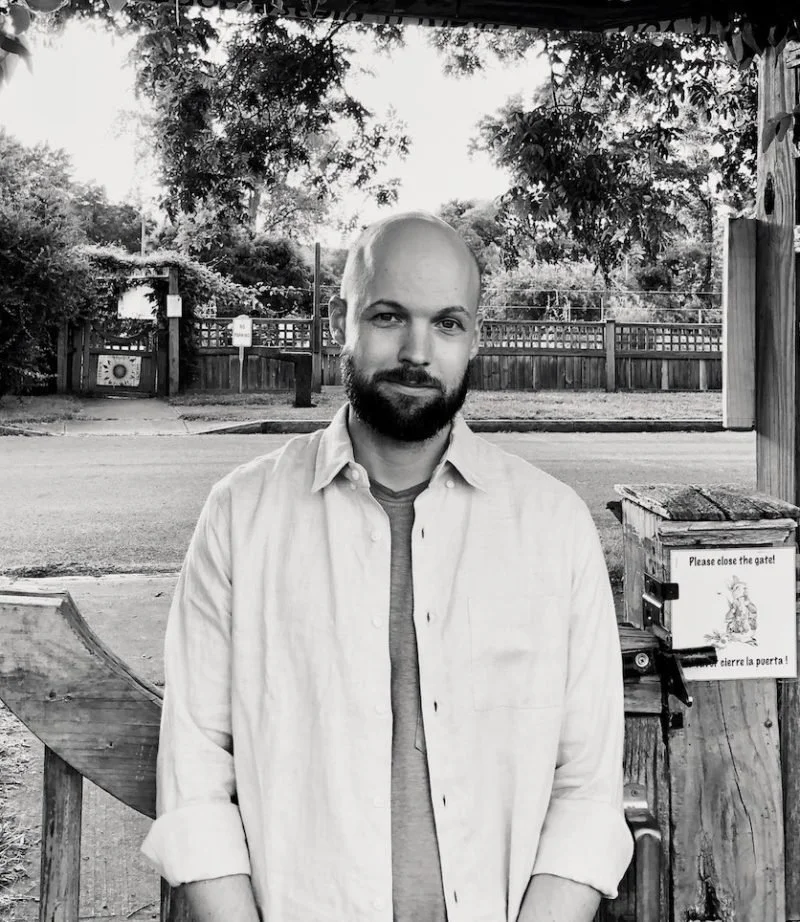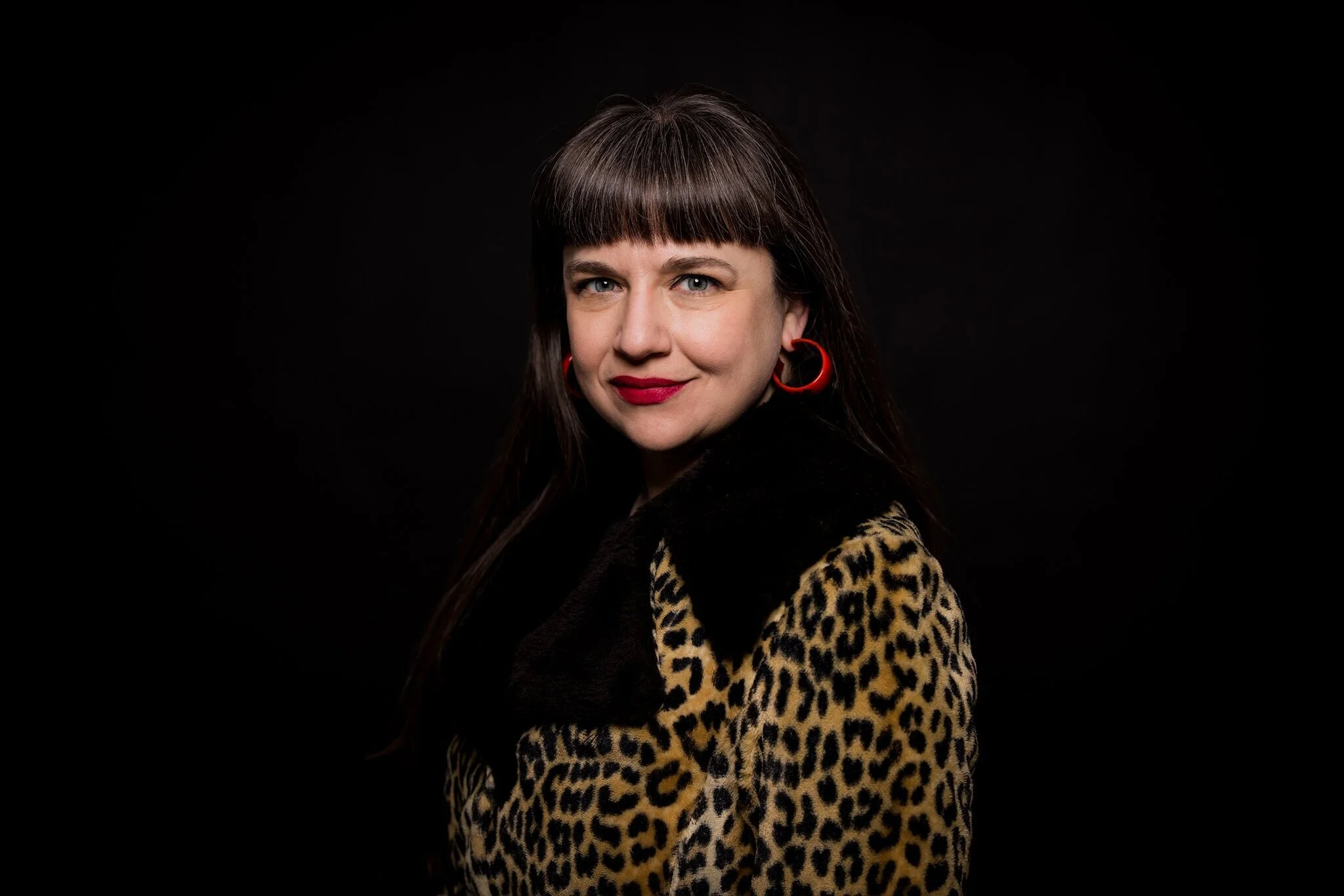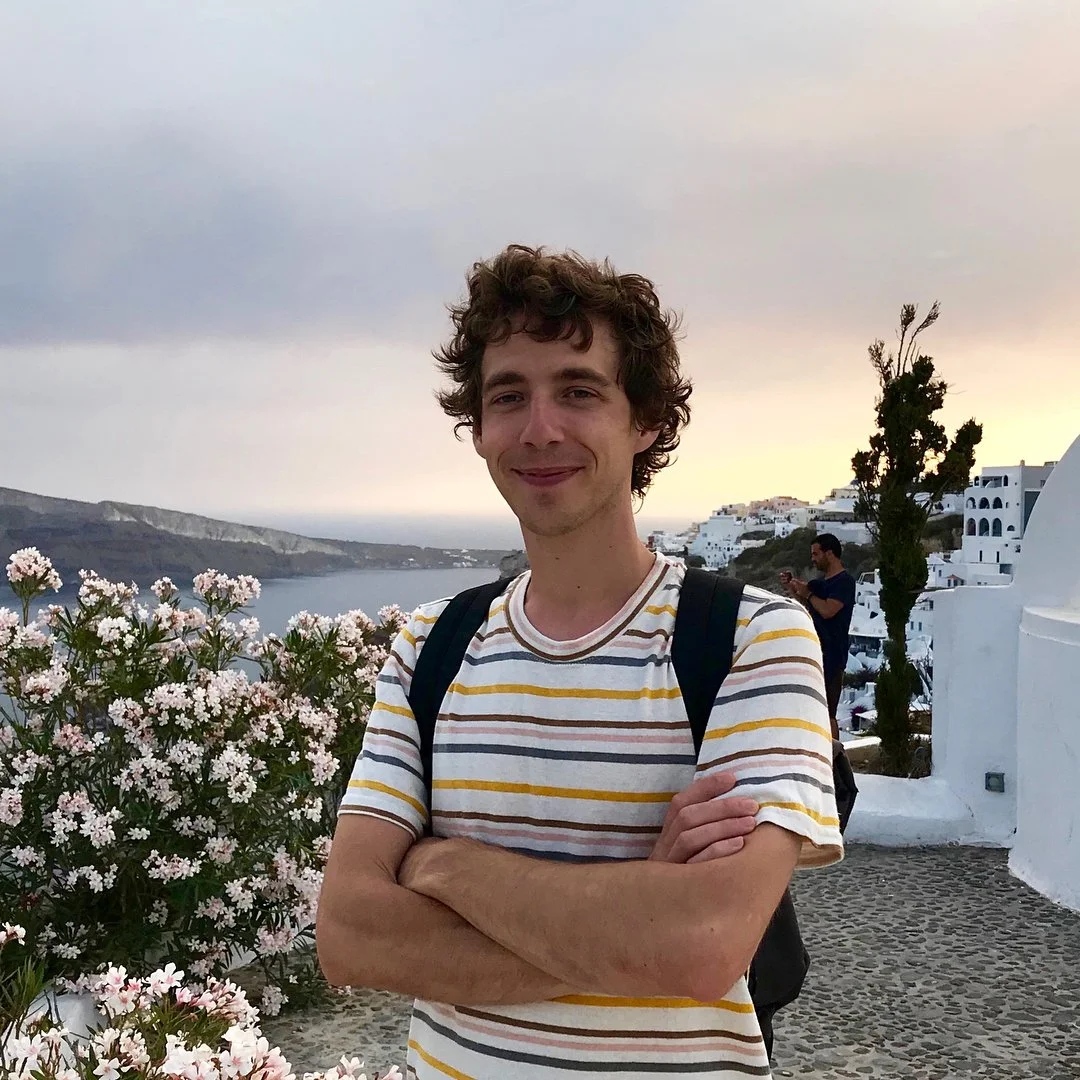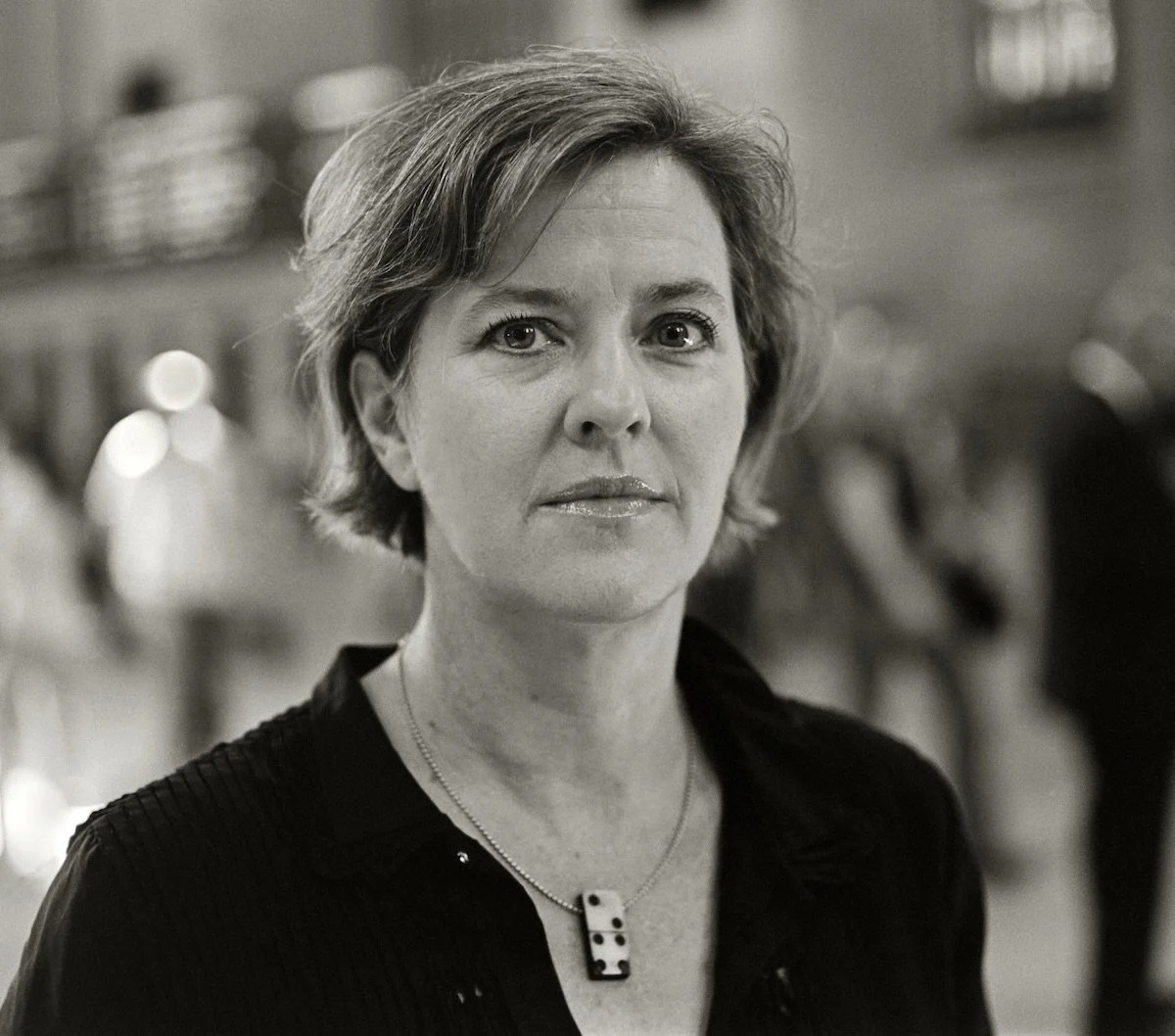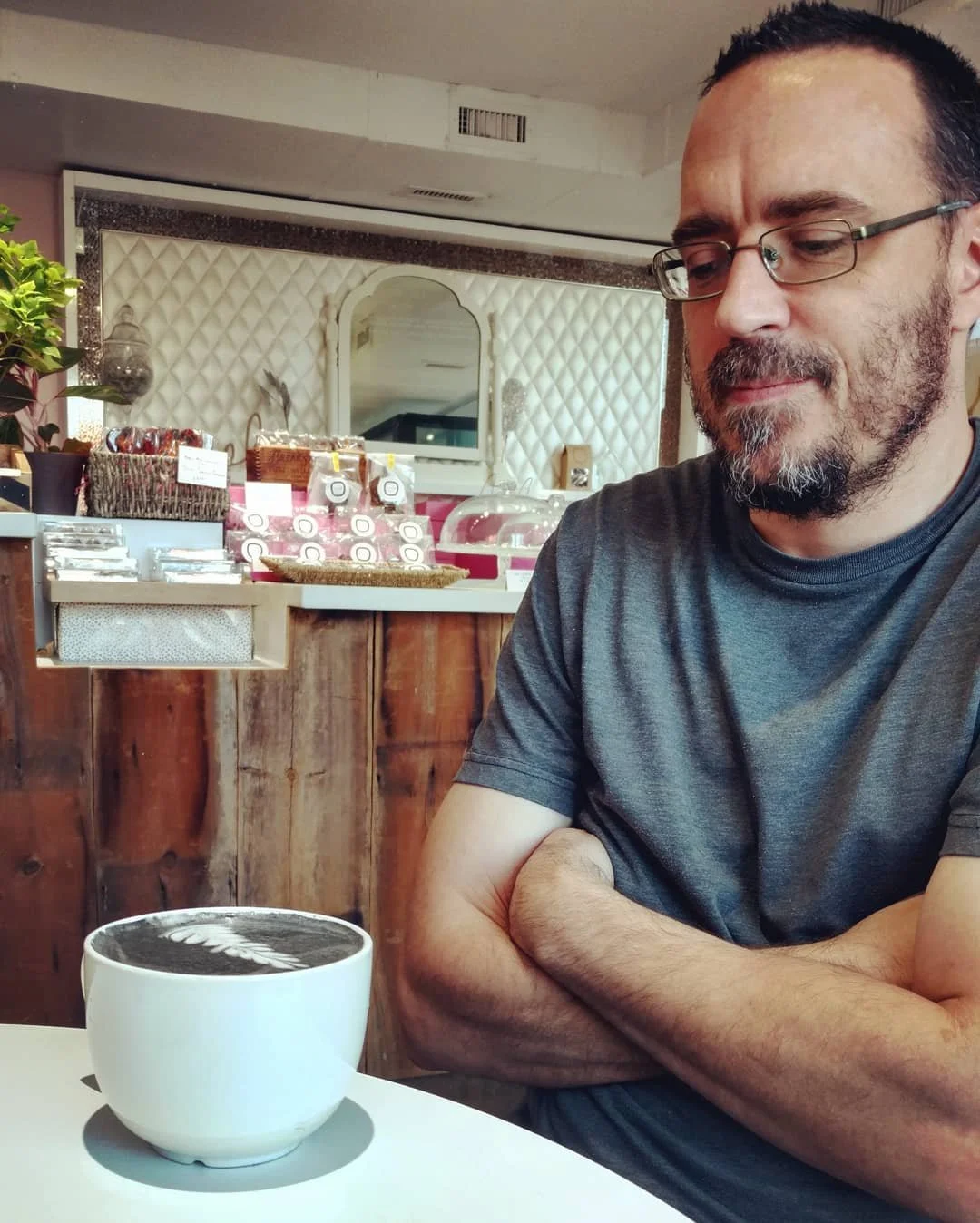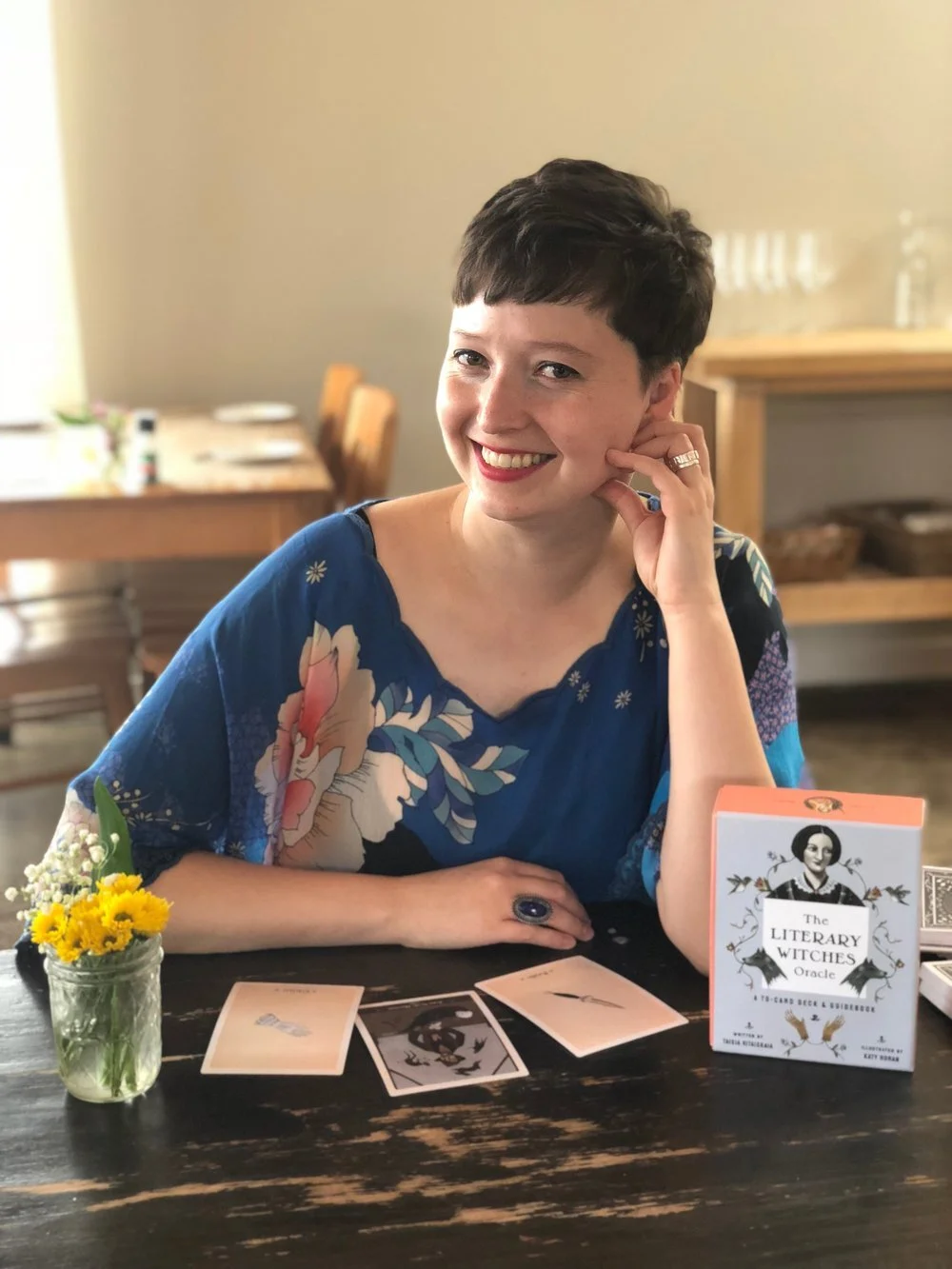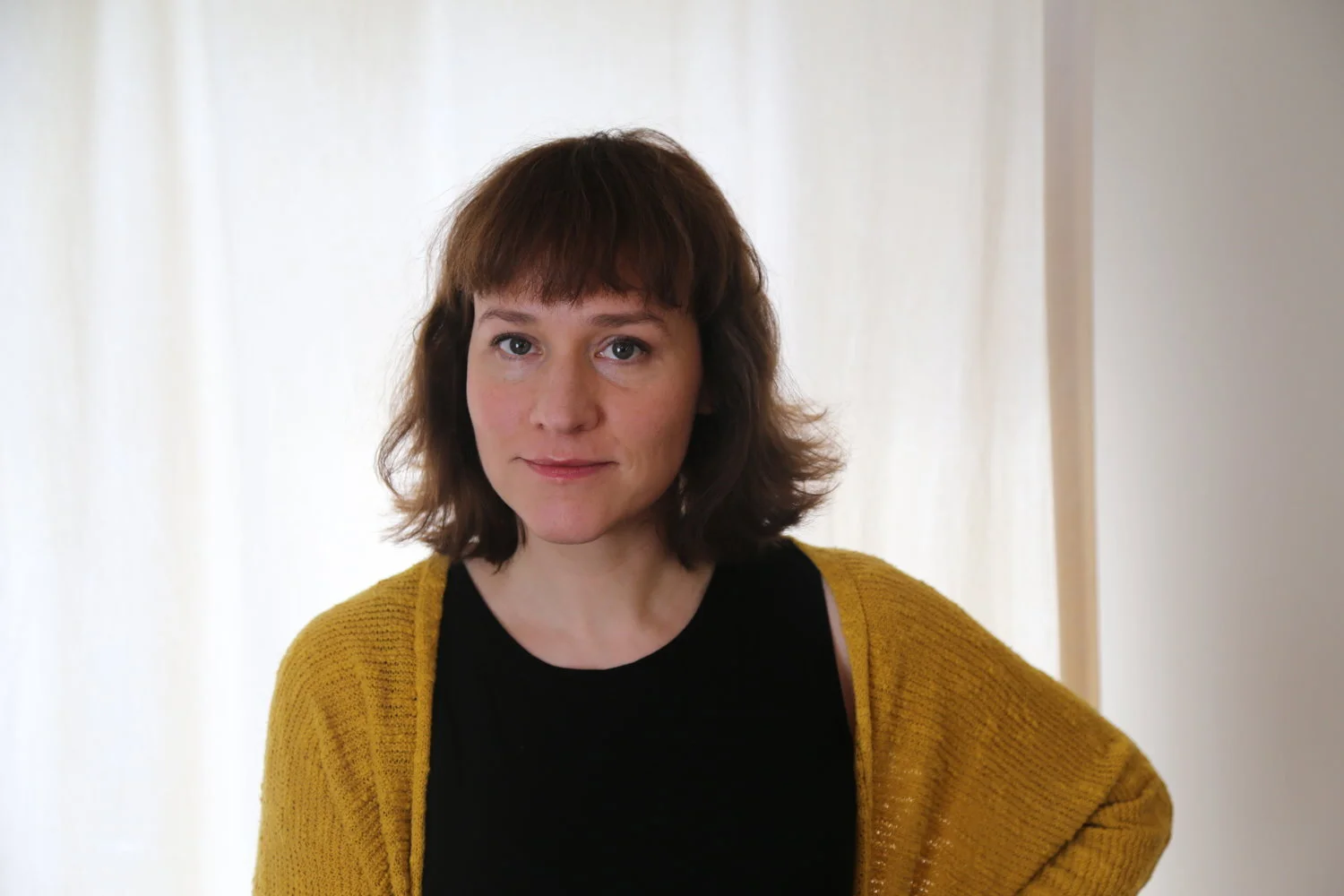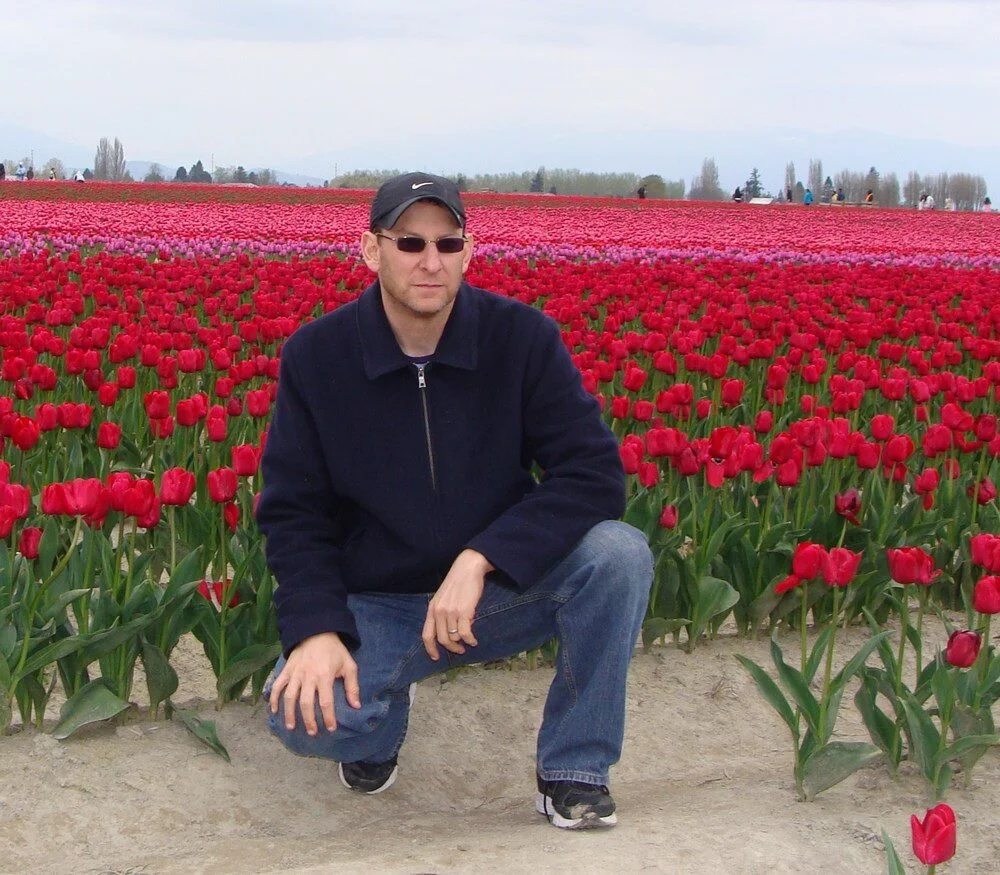The first poem I read by Matthew Olzmann was about a beloved mayor dropkicking tiny animals. At first, it made me smile, and then it made me laugh, and then it made me quite sad. The rollercoaster sway between the tender and the comedic - a grin followed by wet eyes - is common in Olzmann’s empathetic and atmospheric work. A professor at Dartmouth and Warren Wilson, Olzmann is the author of two poetry collections: Mezzanines (2013) and Contradictions in the Design (2016), both from Alice James Books. With another manuscript (almost) in the books, I spoke with Olzmann about absurdism, tonal shifts, volunteer work, writing while anywhere, and so much more.
Let's begin with an icebreaker. If you had to perform at a talent show (and you weren't allowed to read poetry), what would you choose to present?
I don’t have many other “talents,” but my fantasy basketball team is usually pretty solid.
Time is perhaps pointless, but how has the first half of the year treated you?
Mostly good. As a writer, I feel it’s been productive: I finished a book of poems. The poems in this collection are things I’ve been working on for seven or eight years. Maybe longer. I know there’s one in here that I wrote in 2007 before abandoning it and then completely rewriting later. I feel good about it finally starting to come together.
On the non-writer side of things, the world is kind of a shitshow right now. That’s not something that merely applies to “the first half of this year” I suppose, but I—like almost everyone else—have a lot of anxiety about where our country and planet are heading. Lately, the thing that helps me wrestle that constant creeping sense of dread, just a little, is finding tangible ways where I can work to make something a little bit better. Every week, I work as a volunteer at a local food shelf that provides food assistance to those who need it. The work I get to do there—stocking shelves, sorting produce and helping others get groceries—barely makes a dent in the massive problems facing our society, but it allows me to work on the issue of food security, which is deeply personal for me, and it’s one of the most rewarding things I’ve had the opportunity to do. Someone once told me, “The world will overwhelm you if you try to take it all in at once; pick one issue, something manageable that you can work on.” I’ve found that to be good advice.
Your two collections of poetry are full of autobiographical material but also contain plenty of surreal components. Has surrealism always been an important part of your work?
I’m interested in most forms of absurdity and strangeness. I like the way the absurd can disrupt the reader’s ability to anticipate. I don’t know if surrealism has always been a part of my work, but I’ve always been compelled by work that is charged with an element of wonder.
You released books in 2013 and 2016. Given that timeline, can we expect your next collection right around the corner? Perhaps a better question is: what are you currently working on?
My next collection isn’t exactly “right around the corner,” but it’s definitely on its way. I recently—as in three weeks ago—finished a collection of (mostly) epistolary poems. It’ll be out in a couple years, at the end of 2021. As for what I’m working on right now, I have a lot of poems from the past few years that didn’t fit into that book, and I’m excited to return to those. Beyond that, I’m writing new poems and working on a nonfiction piece about prophecy or fortunetelling.
via Mezzanines
I saw you read at AWP and your shifting tones were really captivating. From angry and loud (wanting to punch William Shatner) to hushed and concerned (violences around the world). While I know some poets despise readings and others adore it, can you speak a bit about this element to your work?
In the past, a lot of people have asked me about my interest in humor, which is a subject I’m very much interested in, but it’s also a topic that’s really a manifestation of a larger interest: points of emotional disparity or incongruity within the confines of a single poem. I think that’s what you’re picking up on by noting the “shifting tones.” As a reader, I’m often drawn to work that holds more than one emotion. When placed next to each other, two different emotional currents can complicate, challenge or deepen one another. One stands out next to the other because of that contrast. Rather than having the primary emotion undermined or called into question by the other, I often find that it becomes heightened through this juxtaposition. A love poem might recognize the potential for loss. An elegy might remember better times. And these competing emotions intensify each other in a way I find honest and captivating.
Also, just to clarify for those who haven’t read the poem you referenced: I don’t really want to punch William Shatner.
With plenty of narrative poems throughout your collections, have you ever dipped your toe into prose?
I occasionally write very short stories or nonfiction that might be described as lyric essays. I also mentioned a nonfiction thing I’m working on about prophecy. That’s still in the early stages, but it revolves around the rumor of an “oracle” that lives in a New Hampshire outhouse—and my brief time ghost writing “fortunes” for that oracle.
Outside of your own work, who/what have you been reading recently?
At this moment, I’m working on a craft lecture for the MFA Program for Writers at Warren Wilson where I’ll be teaching this summer. The talk will focus on several ways the direct address can be used. So, I’ve been looking at work in connection to that subject. This is an impossibly broad topic and could include work by seemingly every poet from the beginning of time until now. Currently, I’m looking at writing by Patrick Rosal, Kim Addonizio, Horace, Yusef Komunyakaa, Kenneth Koch, Hayden Carruth, Donika Kelly, Merwin, Aimee Nezhukumatathil, Shakespeare, Alice Walker and a dozen or so others. I won’t be able to use a fraction of what I’d like to given the necessary time constraints, but those are some of the people I’m thinking about.
If you emptied your pockets right now, what would you find?
Keys. Cellphone. That’s all—I checked.
If you can, provide a photo of your workspace (or describe with words). What are some essentials while you create?
The picture I attached is a hotel room; that’s where I was when I answered most of these interview questions and, for that particular day, it was my workspace. I don’t always have a regular workspace—though I prefer my desk at home. I use that a lot, but I’ll also write at the kitchen table or in my office at the college where I teach. I write in a café a couple miles from my apartment. I write on busses and in airports. I try to be flexible and adaptable. Years ago, back in Detroit, I was working four part-time jobs and zigzagging back and forth across the city. Each day, I had a different schedule. It was absolute chaos, but I’m grateful for the experience. That period of my life spanned a decade or so, and I learned to write whenever I found 15 minutes of time; I learned to not be too precious about finding the perfect moment or place. Write in your car between jobs. Write late at night when all the work is done. Write at the laundromat. Write in the school library. I feel lucky because some of those habits became internalized, and years later, I was able to continue that even after things settled down and my daily routines became more consistent. As for essentials: my laptop is the most consistent thing. One thing that helps me dive back into the writing—no matter where I am—is I always have a file open with 5-10 poems that I’m working on or revising. Things that are already in-progress. Even if I have no new project in mind, no divinely inspired “ideas” or aspirations, I can always open up the computer and there’s something waiting for me. I cycle through them. If I’m stuck on one, I move to the next.
For this ongoing author interview series, I'm asking for everyone to present a writing prompt. It can be as abstract or as concrete as you choose.
I’ll connect this one to your question about tonal shifts. Write a poem that combines two different types of emotions that you might not expect to go next to each other. From confusion to wonder. From anger to a quiet reflection. If you’re not sure where to start, think of different types of speeches or how you speak in different types of situations. For example: start with a joke, end with a prayer.
In closing, do you have any advice for writers trying to grow in their craft and/or get published? Or rather, what's something you would have like to have known when you first started taking your writing seriously?
The thing I wish I knew earlier was there’s not one correct “path” to becoming a writer. When I first started out, people who were writers were very mysterious to me. I didn’t know how they got to where they were, and I assumed there were things I was probably supposed to be doing that I wasn’t doing. I didn’t know what those things were, but whenever I got advice—any advice—I took that as fact even if it was utterly wrong. For example, someone once told me something like, “You shouldn’t write anything until you’re 30 or 40. You need to have experiences to write about.” Of course, that’s ridiculous. But when I was 18 or 19, that filled me with a lot of anxiety. Like I didn’t yet have permission, or that I needed to wait for some vague, luminous event in the future to open a door before I could begin. But if someone is old enough to imagine being a writer, they’ve probably collected enough “experiences” to fuel the creation of poems or stories. They’ve probably experienced joy and doubt. They probably asked, “Why are we here?” That alone covers half of all literature. You can also make things up. What you don’t know might be more intriguing than what you already know. Experience is only as interesting as a writer makes it. There are boring poems about space travel, death, and angels descending upon the Earth. There are wonderful poems about insects, last night’s leftover casserole, and clouds.

